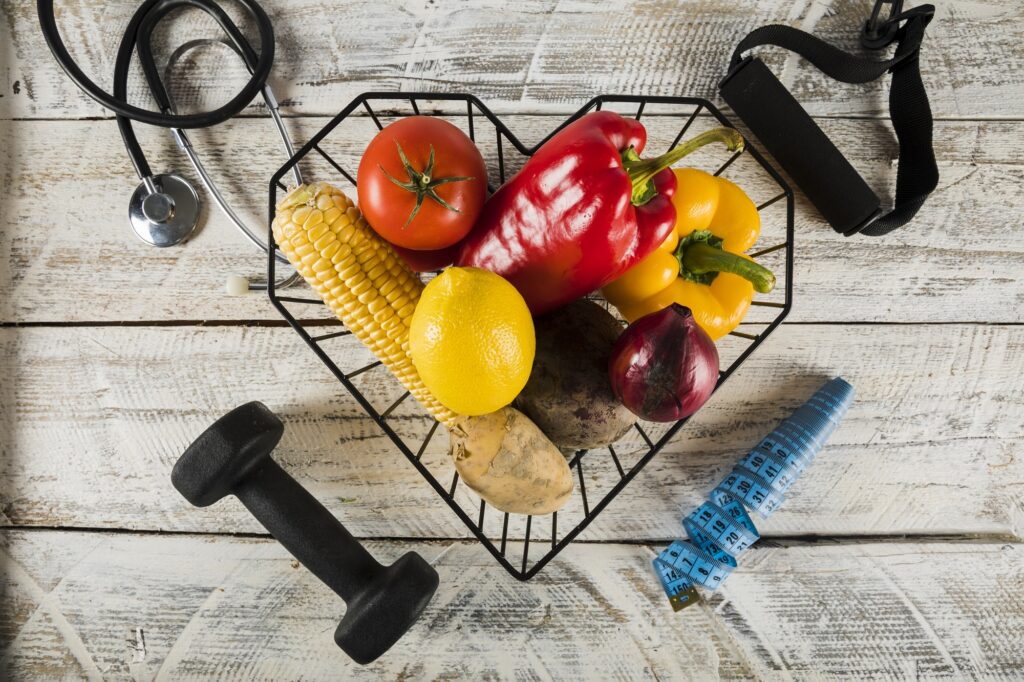Introduction
Losing weight(weight loss) and keeping it off can be challenging. Far too often, people lose weight only to gain it all back shortly after. However, lasting weight loss results are absolutely possible with persistence and dedication to improving daily habits.
Small yet impactful changes to your lifestyle can make a tremendous difference long-term. By adopting just a few healthy habits, you can achieve sustainable weight loss that actually sticks. This guide outlines 10 of the best habits for lasting weight loss success.
Rather than follow unsustainable fad diets or adopt extreme exercise regimens destined to fail, focus on incremental changes that better your health and empower you to reach your goals. With time and consistency, these healthy habits will become second nature. You’ll not only lose the weight, but keep it off for good – leading to improved confidence, energy, and quality of life.
The journey begins with optimizing your daily habits around eating, activity, sleep, and more. Read on to learn habits that deliver proven and lasting weight loss results.

Eat More Whole, Unprocessed Foods
Eating more whole, unprocessed foods is key for lasting weight loss. Whole foods like fruits, vegetables, whole grains, beans, nuts, seeds, and lean proteins provide a wealth of vitamins, minerals, antioxidants, and fiber that support health and promote weight loss.
Processed and refined foods lack nutrients and often contain excess sugar, unhealthy fats, and calories. These foods promote weight gain and disease risk when consumed regularly.
To lose weight sustainably:
- Fill half your plate with non-starchy vegetables like broccoli, carrots, zucchini, peppers, and greens. The fiber keeps you full and the nutrients support health.
- Enjoy fruit as snacks and desserts instead of processed sweets. Berries, apples, bananas, and citrus fruits provide fiber, vitamins, and antioxidants.
- Choose whole grains like oats, quinoa, brown rice, and 100% whole wheat bread and pasta. The fiber aids weight loss.
- Get lean proteins from fish, poultry, beans, lentils, eggs, Greek yogurt, and low-fat cottage cheese. Protein increases satiety.
- Include nuts, seeds, avocado, olive oil, and nut butters for healthy fats. These promote satiety and heart health.
- Limit sweets, sugary drinks, fast food, fried foods, and salty snacks like chips, crackers, and cookies. These provide excess calories with little nutrition.
Focusing your diet on whole foods naturally eliminates unhealthy options and promotes weight loss success over the long term.
Control Portion Sizes
One of the most effective strategies for losing weight and keeping it off is controlling your portion sizes. With the abundance of restaurant portions and packaged foods today, it’s very easy to overeat without realizing it. Here are some tips for controlling portions:

- Use smaller plates and bowls. Studies show that people unintentionally serve themselves more food when using larger dinnerware. Replace your large plates with smaller 9-10 inch plates.
- Measure and weigh your foods. Use a food scale or measuring cups to accurately assess portion sizes, especially for calorie-dense foods like oils, nut butters, cheese, etc. Weighing portions helps train your eyes and makes you more aware of proper serving sizes.
- Follow recommended serving sizes. Check nutrition labels for suggested serving sizes on packaged foods. Stick to single servings instead of eating directly from a package.
- Avoid “all you can eat” buffets. It’s difficult to control portions when there is unlimited food in front of you. Overeating is common in these settings.
- Stop eating when you feel satisfied, not stuffed. It takes about 20 minutes for your brain to realize you’re full. Eat slowly, check in with hunger cues, and stop before feeling uncomfortably full.
- Split restaurant meals or take home leftovers. Most restaurant portions provide 2-3 servings worth of food. Ask for a to-go box when your meal arrives to pack away leftovers.
- Use smaller dinnerware for meals. Eat from a small salad plate instead of a large dinner plate. Use a mug for soup instead of a bowl. This automatically reduces portions.
Controlling how much you eat is critical for weight loss success. Measure portions, use smaller plates, and listen to your body’s fullness signals. Proper portion sizes will help you eat less without feeling deprived.
Drink More Water
Water is incredibly important when it comes to lasting weight loss. Drinking adequate water helps boost your metabolism, keeps you feeling full, and prevents overeating.
When you are properly hydrated, your body is better able to break down fat cells and utilize them for energy. Water also helps flush toxins and keeps your system running efficiently. Being even just slightly dehydrated slows your metabolism and prevents fat breakdown.
Drinking water before meals can help you eat less overall. Research shows that drinking water before a meal results in an average reduction in intake of 75–90 calories per meal. That adds up over time! Water gives your stomach something to fill up on so you are less tempted to overeat.
Another benefit of drinking more water is that it helps prevent false signals of hunger. Sometimes we think we’re hungry when in actuality we’re just thirsty. Next time you feel hungry between meals, try drinking a glass of water first. Chances are your “hunger” will subside.
Aim to drink at least eight 8-ounce glasses of water per day for maximum weight loss benefits. Carry a water bottle with you to help you drink more. Drink a glass of water before every meal and snack to help you eat less overall.
Limit Sugar and Refined Carbs
Cutting back on sugar and refined carbs is one of the most impactful habits for lasting weight loss. Foods high in added sugars like soda, candy, baked goods, and sugary cereals can lead to weight gain and negatively impact health. Refined carbs like white bread, pasta, and rice act similar to sugar in the body by spiking blood sugar and insulin levels.
Limiting intake of these foods helps regulate appetite and cravings. It also helps the body maintain steady energy levels and avoid insulin resistance which makes weight loss extremely difficult. Focus on getting carbohydrates from high fiber whole food sources like vegetables, fruits, beans and legumes. Avoid sugary beverages and aim for less than 25g of added sugar per day. Read nutrition labels to identify hidden added sugars in packaged foods. With this habit alone many see significant improvements in energy, cravings and weight loss.
Eat More Protein and Fiber
Protein and fiber help keep you feeling full and satisfied longer after eating. High protein foods like eggs, chicken, fish, Greek yogurt, and beans require more time to digest, which prevents spikes and crashes in blood sugar. The protein and fiber combo also helps regulate appetite hormones so you feel satisfied on less food.
Fiber from vegetables, fruits, whole grains, nuts and seeds is not fully digested, so it stays in your stomach and intestines longer giving you the sensation of fullness. Soluble fiber like oats and beans also slows digestion and helps stabilize blood sugar.
Boosting protein and fiber at meals and snacks helps control hunger and cravings. Aim for 20-30 grams of protein and 25-35 grams of fiber per day. Great high fiber, high protein foods include lentils, chickpeas, nuts, seeds, whole grains, vegetables, berries, avocado, eggs, fish, chicken and Greek yogurt.
Do Regular Exercise
Getting regular physical activity is important for lasting weight loss. Exercise helps burn calories and fat, while also building lean muscle mass. It provides numerous health benefits beyond weight control as well.

Aim for a mix of cardio, strength training, and flexibility exercises throughout the week. Cardio like walking, jogging, cycling, or swimming helps burn calories and fat. Strength training builds metabolism-boosting muscle mass. And flexibility activities like yoga keep your joints mobile and prevent injury.
- Shoot for at least 150 minutes of moderate cardio per week, along with 2-3 days of strength training.
- Mix up your workouts to keep them interesting. Try cycling one day, then strength training the next.
- Increase your daily movement with activities like taking the stairs and walking more. It all adds up.
- Work with a trainer to learn proper form and technique on new exercises. This prevents injury.
- Listen to your body and take rest days when needed. Recovery is part of the process.
- Stay consistent, but be flexible. Life happens, so shift your workouts if needed. Just keep moving.
Regular exercise paired with proper nutrition is the key to lasting weight loss success. Keep workouts fun and find forms of activity you enjoy to make it a sustainable lifelong habit.
Get Proper Sleep
Getting adequate sleep is crucial for successful weight loss. When you don’t get enough sleep, your body produces higher levels of the hormone ghrelin, which stimulates appetite. At the same time, lack of sleep also results in lower levels of leptin, the hormone that promotes satiety. This combination can make you feel hungrier.
Lack of sleep is also linked to higher insulin resistance, which can reduce glucose tolerance and affect fat metabolism. This makes it harder to lose weight when you’re sleep deprived.
Aim for 7-9 hours of high-quality sleep per night. Establish a regular sleep schedule and wind-down routine. Make your bedroom cool, dark and tech-free. Limit caffeine intake in the afternoons and evenings. Getting enough deep, restorative sleep optimizes your appetite hormones and metabolic function for easier weight loss.
Manage Stress
Stress takes a toll on your mind and body. When we are stressed, our bodies produce a hormone called cortisol that can increase fat storage, particularly around the midsection. This happens because cortisol triggers a metabolic response that promotes fat accumulation in these areas.
Chronic stress keeps cortisol levels elevated, which hampers weight loss efforts. That’s why it’s critical to find healthy ways to manage stress if you want to lose weight and keep it off. Some effective stress relieving techniques include deep breathing, yoga, meditation, listening to music, taking a walk outside, or enjoying a warm bath.
Reducing stress will help normalize cortisol levels so your body can let go of excess fat storage. Aim to incorporate relaxing rituals into your day, carve out time for self-care, and don’t hesitate to ask for help when you feel overwhelmed. Learning to manage stress in a healthy way will provide lifelong benefits beyond just slimming your waistline.
Be Accountable
Being accountable for your actions is key to achieving lasting weight loss. Here are some tips to stay accountable:
Weigh yourself regularly. Weigh yourself at least once a week, ideally on the same day at the same time, like Saturday morning right when you wake up. Tracking your weight helps you see patterns so you can catch any gains before they get out of hand. This data will also show you when your hard work is paying off!
Keep a food journal. Writing down everything you eat and drink keeps you aware of exactly what you’re consuming every day. It only takes a few minutes but makes a huge impact. You may be surprised to see just how many extra calories slip in from mindless snacking and tasting food while cooking. A food journal provides that essential feedback.
Join a support group. Whether it’s a friend, accountability partner, or community support group, having someone to discuss challenges with makes the process so much easier. Share your ups and downs, ask questions, and celebrate victories together. The comradery goes a long way when the journey gets tough. Knowing someone else is counting on you can give that extra motivation on rough days.
Incorporating these habits into daily life forms a holistic approach to weight loss, emphasizing sustainable lifestyle changes for long-term results. Each habit plays a crucial role in promoting overall health and well-being, creating a foundation for successful and lasting weight loss.